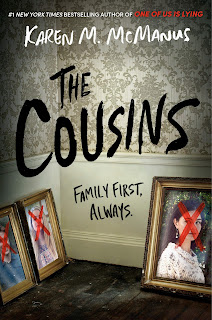In Evalina's world, fashion functions as a personification of certain characters. Each character's clothing denotes their function in social culture, especially in the case of Madame Duval and her relatives, the Branghtons. Clothing functions to support a character's role in the story, to cement their identity.
 As Evalina and the Branghtons are to attend the opera, even Evalina, the country bumpkin, notes their lack of appropriate clothing: "Indeed, their dress was such as would have rendered their scheme of accompanying our party impractical..." (86) It is obvious that Burney is noting the social fashion of attending theatrical productions; it was as much being seen as seeing the play! The family created their identity immediately from their poor dress and inability to read a fashionable situation.
As Evalina and the Branghtons are to attend the opera, even Evalina, the country bumpkin, notes their lack of appropriate clothing: "Indeed, their dress was such as would have rendered their scheme of accompanying our party impractical..." (86) It is obvious that Burney is noting the social fashion of attending theatrical productions; it was as much being seen as seeing the play! The family created their identity immediately from their poor dress and inability to read a fashionable situation.Madame Duval's lack of wearing "weeds" or mourning clothes shocks the English characters, but also her lack of bonnet or hat: "But she never wears either herself, and thinks them very English and barbarous..." (90) Madame Duval attempts to be the most fashionable, but comes across as rather foreign and inaccessible to the other characters..
The Branghtons are known throughout for their odd dress. This is most apparent when the daughters are fingering Evalina's dress: "This apron's your own work, I suppose, Miss? but these spring a'n't in fashion now. Pray, if it is not impertinent, what might you give a yard for this lutestring?" (71) They show their lack of knowledge by admonishing her lack of style and yet asking for the price of the fabric per yard. Evalina, while of a lower social standing, is more polite in these situations.
Yet it is Evalina who contrasts her relatives and their poor breeding. She notes that she is "out of place" when she attends the opera in finer clothing while in the rabble of the pit. Evalina wears appropriate clothing, yet she always seems to be getting "stuck" as the result. When she thwarts the young poet's suicide, he stops her before he leaves: "...he sprung hastily forward,-dropt on one knee,-caught hold of my gown, which he pressed to his lips..." (185) She is frightened by the man, though he will do her no harm. While in Clifton Evalina's dress is assaulted yet again, this time by that rogue Clement: "Alarmed at a fury so indecently outrageous, I would have run out of the room; but he caught hold of my gown..." (357) Evalina does know how to dress, but it is obvious that this clothing functions to hold her back, to keep her in one spot. Could this be commentary by Burney about the proper clothing constricting women?
In the end, Burney uses clothing to help the reader come to conclusions about each character, despite their actual social standing. While Evalina is considered fashionable and "correct," her dress will often get her in trouble. It is perhaps to remind us as readers how "trapped" women were in this specific role; they could not be aggressive when pursuing desires, and a sense of demurring could be mistaken for wanton passion. The function of fashion for these characters not only shows their roles in the text, but comments on the social position of women in the time period.
Burney, Francis. Evalina. Oxford: Oxford University Press, 2008. Print.
http://ebooks.adelaide.edu.au/b/burney/fanny/evelina/images/p182.jpg



I noticed a lot of the violence Evelina endured at the hands of men like Clement, but it's so interesting to learn how fashion is connected to this theme in the novel. I often overlook these details, but now I'm beginning to understand the importance of paying attention to them as they provide great insight on not only clothing during the period, but what it says about a woman's role in eighteenth century English society. When you mentioned that her gown was brought up typically when in the hands of a man, (usually one who was sexually or physically abusive towards her) it really opened my eyes to the linkage of clothing and the perception and treatment of women at this time.
ReplyDelete